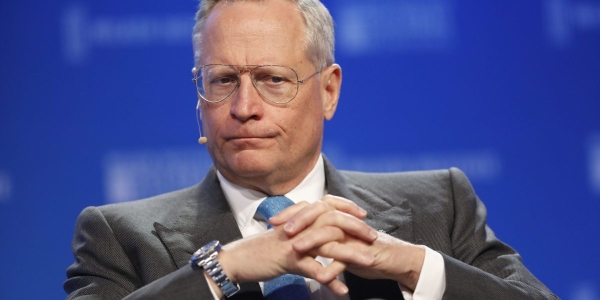
In the 1970s, Ross Perot Jr., who’s now chairman of the Perot Group and Hillwood, and his father bought and sold land. His father was, of course, Ross Perot, two-time presidential candidate and founder of Electronic Data Systems, and eventually, Perot Systems—deemed “the fastest richest Texan ever” in 1968 by Fortune.
Well into the 1980s after he’d been buying and selling land on his own, Perot Jr. founded Hillwood, a Dallas, Texas-based commercial and residential real estate development company. Following the savings and loan crisis, Perot says he “became a developer out of necessity.”
After four decades of low inflation and low interest rates, the era of cheap money has ended—and the tailwinds he’s seen throughout his real estate career have turned into headwinds, Perot Jr. says. High interest rates coupled with tightened credit, which have made borrowing more expensive and more difficult, along with the transition to working from home, have Perot suggesting that “commercial real estate, overall, will slow down,” and potentially head toward a recession.
“It’ll be years before we really understand the damage the pandemic did to the world,” Perot tells Fortune, adding that for one, “it broke the habit patterns of millions of people that used to go to work every day in a real office.”
All eyes are on the office sector, and as Fortune has previously covered, some say it’s already crashing. Fred Cordova, chief executive officer and founder of Santa Monica–based commercial real estate brokerage and consultancy firm Corion Enterprises, recently told Fortune that “what’s happening in the office sector is apocalyptical: We’re creating this huge class of zombie buildings, buildings that no one wants to put any money into because the capital structure is broken.”
Perot’s take isn’t much different, but from his own experience, he says that Dallas hasn’t been hit nearly as badly as Los Angeles, San Francisco, or Manhattan. In fact, his firm is developing an 800,000-square-foot tower for Goldman Sachs that’ll serve as the bank’s Dallas-based office. But New York City is a different story, and he has no idea what will be done with all the old office buildings.
“It’s not attractive enough because now if you do go to the office, people want new, beautiful, highly amenitized offices, and a lot of [them] don’t have the money to fix up, and I think the conversion of office to residential is really going to be hard,” Perot says.
Although Perot does see this as an opportunity for the city and state—he says he’d buy some of those old office buildings, tear them down, and turn them into parks. But that wouldn’t solve New York City’s housing problems.
Before I could finish asking Perot if his concerns regarding commercial real estate extended beyond office, he said it’s all commercial real estate and that “it’s difficult to see how we’re not going to have a real estate slowdown.” Commercial real estate is largely built on debt, and with interest rates that’ve gone up and stress in the banking sector, it’s not so easy to get a loan anymore.
“It’s difficult to get a real estate loan, and it’s difficult when all these loans come due,” Perot says. “Do the banks have the money to renew the loan? That’s the big question. Even if you’ve got a good property, these banks might need the money back to solidify their balance sheet.”
Industrial is strong, but it was overbuilt during the pandemic, Perot says. Multifamily has been overbuilt too. Lending has changed, and for the commercial real estate industry, that means it’s headed into a buying phase rather than a building phase, according to Perot.
“I don’t like the bank loans, I don’t like the amount of equity you need to put into a new project now,” Perot says. “A lot of developers, like myself, we’re going to go risk-off. We’re going to pause.”
Still, he’s optimistic for his own company, even though he tells me his clients are slowing down and it’s becoming tougher to get loans, while “everything is just sort of on unstable ground.” Moving forward, Perot says we should expect a shakeout within the commercial real estate sector, at which point the “weaker players will come to the surface.” Then the sector will enter into a restructuring phase, which could look like veteran developers coming in with rescue capital. But before that happens, a wave of commercial real estate loans are set to mature, which as Fortune has previously reported is likely to result in increased delinquencies and defaults amid tightened credit and falling property values.
“I mean, you’ve got to believe it’s going to happen,” Perot says. “You hope it doesn’t, but you got to prepare for it. And that’s why the banks are not lending, because the banks don’t know what kind of hits they’re going to have on their existing loan portfolio.”
So, what’s next? Well, there’s some good news. For one, Perot says he doesn’t think there’ll be a prolonged housing downturn—and if there is, it won’t be anything like 2008. But within the commercial real estate sector, “you’ll have a recession,” Perot says, pointing out that because the government is increasingly spending on renewables, the industrial space could offset some pain. However, in his view, it all comes down to the relationship between the banks and the commercial real estate sector.
“If the banks are this risk-off, and they’re not making real estate loans, the real estate industry will stop…If the banks don’t loan, you’ll have a recession,” Perot says.






